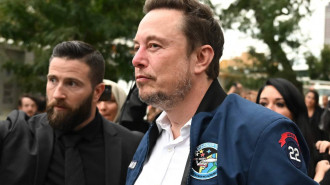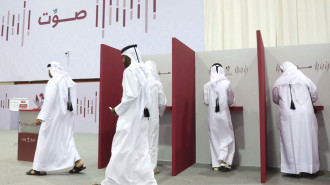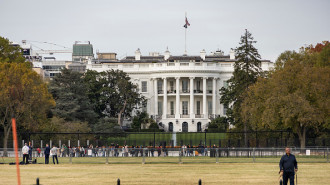Morocco opposition leader Benkirane says 'trust in govt lost', calls for early elections
The leader of Morocco’s largest opposition party on Saturday called for early parliamentary elections as the government had "lost the people's trust."
"The problem today is that we live under…a government that no longer enjoys the confidence of society and the people," said Abdelilah Benkirane, who heads the Islamist Justice and Development Party (PJD) and is a former prime minister.
He made his comments during a regular session of the PJD’s national council in the coastal city of Bouznika.
"The Kingdom of Morocco today has nothing to fear. It can run the elections at a time when it deems it right," he added.
Morocco's next general election is scheduled for 2026.
A large majority of 95 percent of respondents said they were unhappy with how the government has handled price hikes in fuel and other basic commodities.https://t.co/zrCSS3QiIQ
— The New Arab (@The_NewArab) January 9, 2023
The PJD lost the majority it formerly held for a decade in Morocco’s parliament to Prime Minister Aziz Akhannouch’s National Rally of Independents in September 2021.
But since being appointed premier, Akhannouch has faced heavy criticism for the dwindling socioeconomic conditions many Moroccans face. He was the centre of controversy after the price of fuel spiked in the country, as he heads one of Morocco’s largest fuel distribution companies.
"[PJD] parliamentarians still enjoy the trust of society and [even] their opponents, while their opponents don’t even trust each other," said Benkirane on Saturday, adding that Akhannouch could not continue to govern without people’s trust and "without care."
At the end of the last month, Akhannouch celebrated what he called his government’s "social and economic victories," despite the coronavirus pandemic, geopolitical tensions, and drought.
The North African nation’s tourism-reliant economy was battered during Covid-19 due to repeated lockdowns and a sharp decline in visitors. Being an oil importing economy also heavily dependent on trade with Europe, it is more exposed to global shocks, particularly following Russia’s invasion of Ukraine.





 Follow the Middle East's top stories in English at The New Arab on Google News
Follow the Middle East's top stories in English at The New Arab on Google News


